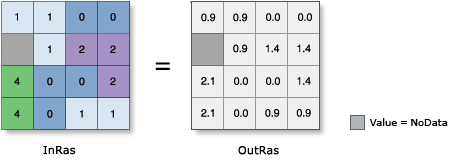| Label | Explanation | Data Type |
Input raster or constant value | The input for which to calculate the inverse hyperbolic sine values. To use a number as an input for this parameter, the cell size and extent must first be set in the environment. | Raster Layer; Constant |
Return Value
| Label | Explanation | Data Type | Output raster | The output raster. The values are the inverse hyperbolic sine of the input values. | Raster |
